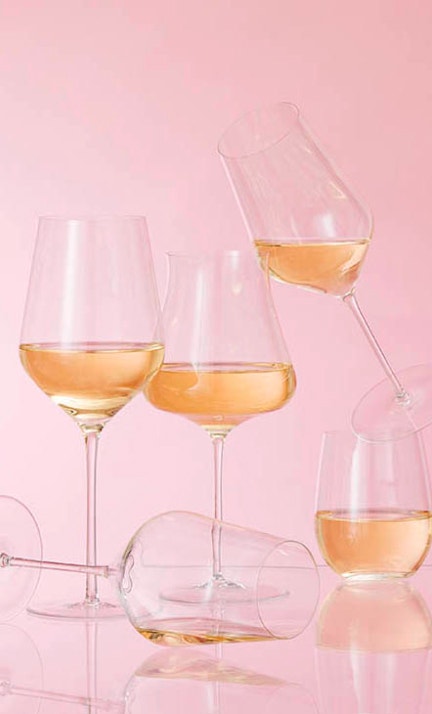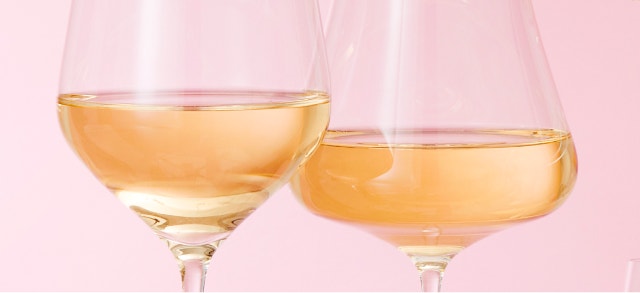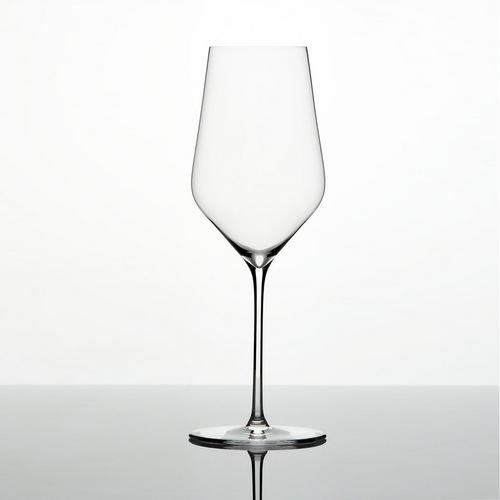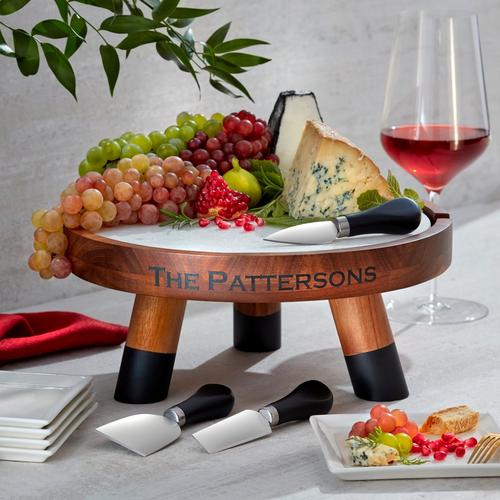Wine Enthusiast |
- Wine Lightens Up as Heavy Bottles Fall Out of Favor
- Wine Enthusiast Podcast: Is There Anything New to Say About Rosé?
- Steely, Dry and Elegant: Eight German ‘Great Growth’ Rieslings
- Wine Enthusiast Companies Names New Presidents, Erika and Jacqueline Strum
| Wine Lightens Up as Heavy Bottles Fall Out of Favor Posted: 09 Jun 2021 04:30 AM PDT  Does anyone still believe that for a wine to be good it has to come in a heavy bottle? Or that all heavy bottles contain great wine? Jancis Robinson, MW, has drawn a line and declared that it doesn’t matter if the wine is good or not, the heavy bottle has to go. As someone whose arms are often tested by weightlifter wines, I agree it’s time to rethink this kind of packaging. My biceps will recover, but the planet may not. In February, Robinson announced that she and her team at JancisRobinson.com would start weighing bottles when they taste and record the weights of particularly heavy or light bottles “in order respectively to condemn or praise those producers who had chosen them…in recognition of the fact that making and transporting glass bottles is by far the greatest contribution to wine’s carbon footprint.” She received immediate reaction in favor of this policy, including from Napa Valley wineries like Spottswoode. In response to the announcement, Owner Beth Novak Milliken commented, “this takes great courage, and I believe it will lead to needed change.” Spottswoode is among the wineries that come to mind when I think of outstanding, collector-level wine in a lighter weight bottle. Heitz, Corison and Ridge are others. There are many additional examples from around the world. But the pushback to such heft has been a simmering, slow burn.
Dr. Richard Smart, an Australian viticulturist and global viticulture consultant, has authored or coauthored more than 380 publications. In 2019, he wrote on JancisRobinson.com about the ways in which wine producers and consumers could help to reduce wine’s carbon footprint. His biggest point was this very topic. “The really big reductions in carbon footprint are to be made in reducing the carbon costs of glass bottles and transport,” he wrote. “Wine bottles require much fossil fuel-based energy to manufacture, and then to transport, and maybe recycle…it is about time the global wine sector reconsidered packaging, at least for the great majority of less expensive wine that is made for immediate consumption rather than ageing in bottle.” Aluminum cans, cardboard cartons, pouches and reusable bottles are making significant inroads with consumers as a result. So is drinking more local. Might that sentiment be increasing? “The epidemic has exacerbated trends that we saw slowly emerging before,” said Véronique Pardo, food anthropologist and director of France’s Eating Habits Observatory, to Areni Global. “A turn towards the local; traceability, with the need to know the origin of the product; the search for the natural and healthy, which we now see for the majority of social classes, which only concerned a minority of eaters before Covid.” Wineries have a pressing opportunity now to show and tell more about who they are and what they support. Farming practices, labor practices, community engagement and global collaboration are several areas that matter both internally and externally. Might bottles size be yet another signifier of paying attention, one that is not that complex to achieve? “It’s becoming more and more important for companies to actually stand for something, and to tell their customers what they stand for,” said Rose Marcario, Patagonia‘s recently retired chief executive in an interview with The New York Times. “Customers are voting with their dollars now, and many of them are voting for a better world. I feel like you should let your views be known and let the customer make the choice.” That choice might include lighter bottles that don’t have to double as trophies, but instead as an acceptance of the truth. |
| Wine Enthusiast Podcast: Is There Anything New to Say About Rosé? Posted: 09 Jun 2021 04:00 AM PDT  Ever since the rosé movement exploded onto the scene in the U.S. in the early aughts, production and production has continued to rise worldwide. It's proven that it's much more than a summertime poolside libation, with fans from novice wine lovers to pop culture icons and celebrities. Throughout the novel coronavirus pandemic, rosé was a gateway for many wine consumers to travel the world through their glasses. The style's rainbow of offerings includes selections that are versatile, affordable, approachable, attractive and food-friendly. In this episode, Associate Managing Editor of Digital, Emily Saladino, speaks with sommelier and natural wine consultant Margot Mazur as well as The Lotus and the Vines founder Larissa Dubose. The three discuss how climate change and last year's wildfires found winemakers pivoting from full-bodied reds to rosés made with minimal skin contact. They also explore rosé’s recent history, popularity and where might the great pink wave be off to next. Dubose highlights the importance of exploring food inclusivity by pairing rosé with dishes from different cultures and locales, like the Caribbean and Philippines. For a cheat sheet on how rosé is made, consider this quick guide to rosé wine. Or, check out this article for recommendations of recently reviewed rosés worth picking up today. Still a sucker for French classics? Brush up on the country's top regional styles here, or read about these fortified rosés that march to the beat of their own, stronger drum.   |
| Steely, Dry and Elegant: Eight German ‘Great Growth’ Rieslings Posted: 09 Jun 2021 03:46 AM PDT  Grosses Gewächs, or “great growths,” (GG) is Germany's top designation, which can be used for grapes like Pinot Noir and Silvaner. But Riesling is the most common. These German Rieslings are always vinified completely dry with acidity that is often described as searing. The exceptional quality also means these wines are built to age. Here are eight GG Rieslings to enjoy now or cellar away. Maximin Grünhäuser 2019 Abtsberg GG Riesling (Mosel); $70, 97 points. Struck flint and river rocks introduce this brilliantly steely dry Riesling. Compared to the youthful, almost tropical, charm of the producer’s 2019 Herrenberg GG, lime and grapefruit flavors in the Abtsberg are bracing and linear in youth but suggest a depth and elegance that should reward cellaring. Best to hold till 2024 at least. It should evolve wonderfully through 2035 and hold longer still. Loosen Bros. USA. Cellar Selection. —Anna Lee C. Iijima Schäfer-Fröhlich 2018 Bockenauer Stromberg GG Dry Gold Cap Riesling (Nahe); $125, 97 points. Sourced from volcanic soils, this is a smoldering, intensely mineral wine highlighted by streaks of lime and lemon. It’s piercing and concentrated in pure, pristine citrus flavors but powerful and sinewy on the finish. This bold dry Riesling that should reach peak from 2023 and improve well through 2040. The German Wine Collection. Cellar Selection. —A.I. Ökonomierat Rebholz 2018 Kastanienbusch GG Riesling (Pfalz); $125, 96 points. A rare expression of red-slate soils from the Pfalz, this dry, richly textured Riesling balances piercing gooseberry and grapefruit flavors against a rambling backdrop of scorched earth and spice. Zesty and penetrating, it’s a stately wine that deserves a few more years of cellaring to show its full color. At peak from 2023–2040 but likely to hold longer as well. The German Wine Collection. Cellar Selection. —A.I. Zilliken 2019 Rausch GG Riesling (Mosel); $80, 96 points. This dry bottling from its famed Saarburger Rausch vineyard, this is a sleek, hauntingly concentrated wine. While light in body, it’s a ripe, almost cream-textured Riesling layered with luscious white peach, grapefruit and gooseberry flavors. Reflective of the vintage, it’s a distinctly richer, more extracted expression of the Saar, yet maintains a steely, earthen edge. Approachable now but should improve through 2035 and hold longer still. Loosen Bros. USA. Editors' Choice. —A.I. Dr. Loosen 2018 Ürziger Würzgarten Alte Reben GG Dry Riesling (Mosel); $54, 95 points. Deep ripples of smoke and spice permeate through this smoldering dry Riesling. Packed with bristling lemon and grapefruit flavors, its palate is rich in texture yet steely and firm on the backbone. Tasted in early 2021, it’s nervous and demure in youth but should gain nuance and depth from 2023 and evolve beautifully through 2035 and beyond. Loosen Bros. USA. Cellar Selection. —A.I. Fritz Haag 2019 Brauneberger Juffer Sonnenuhr Trocken GG Riesling (Mosel); $58, 95 points. Notes of nectarine and apricot are cutting and spry in this full-bodied but vital, rejuvenating dry Riesling. Tasted young, it’s gloriously fresh and fruity, etched by streaks of lime acidity and a dazzling mineral undertow. Through 2035 and likely longer, it’s a wine that should gain intensity, earthen complexity and texture. Loosen Bros. USA. —A.I. We Recommend: Schloss Johannisberger 2018 Silberback Trocken GG Riesling (Rheingau); $90, 95 points. Wafting of spring blossoms, smoke and raspberry brambles, this is such a delicately perfumed Riesling. It’s slim in profile but beautifully defined, etched by layers of luminous white peach and grapefruit along with a bold, intensely slaty core. It’s quiet in youth but should gain depth well through 2030 and hold further still. Freixenet Mionetto USA. Editors' Choice. —A.I. Prinz von Hessen 2016 Johannisberger Klaus Grosses Gewäches Riesling (Rheingau); $45, 93 points. Enticing whiffs of smoke, hazelnut and dried sage mingle into succulent lime and lemon here. It’s dry and lusciously full bodied but calibrated by spine-tingling streaks of acid and minerality. It should improve through 2030 and hold further. Folio Fine Wine Partners. —A.I. |
| Wine Enthusiast Companies Names New Presidents, Erika and Jacqueline Strum Posted: 09 Jun 2021 02:50 AM PDT  Adam Strum, Chairman, CEO and Co-Founder of Wine Enthusiast Companies, and Sybil Strum, Chief Brand Officer and Co-Founder, announced today the promotions of Erika Strum to President of Wine Enthusiast Commerce and Jacqueline Strum to President & Publisher of Wine Enthusiast Media. "Sybil and I announce these promotions with great pride and excitement," said Adam. Adam remains in his current role as Chairman and CEO with Jacqueline and Erika reporting to him, while Sybil Strum remains Chief Branding Officer. Adam will also now be Editor and Publisher Emeritus of Wine Enthusiast Magazine. "We're confident that the next generation of the Strum family, with their new and expanded responsibilities, will strengthen our organization's leadership position in wine and spirits as media and commerce move ever faster into digital," said Adam. Raised in the wine and spirits industry, Jacqueline Strum began her career at Wine Enthusiast running all communications, overseeing the renowned Wine Star Awards and successfully relaunching their events division. In her role in publishing, Jacqueline led the development of innovative digital product offerings and multi-channel media programs. Jacqueline has also held public relations and digital media roles for global brands at multiple creative agencies, and she founded ThirstyNest, the first wine and spirits registry for the modern couple. Jacqueline earned her degree in International Business, with a minor in Fine Arts, from George Washington University and completed an Advanced Degree with Distinction with the Wine, Spirits & Education Trust. As Associate Publisher, Jacqueline has helped drive growth in digital media while maintaining a healthy print publication. In her role as President & Publisher of Wine Enthusiast Media, Jacqueline Strum will be responsible for Wine Enthusiast Magazine, winemag.com and Thirsty Nest wine registry. "Niche publications are the healthiest in the media industry and aspirational lifestyle categories like wine are performing particularly well," said Jacqueline. "Our ability to attract younger readers through innovative digital platforms and integration with the commerce side of our business help us maintain the leadership position among wine media." Wine Enthusiast has expanded its reach to nearly 4 million readers across print and digital monthly. In addition to double-digit growth on the digital side of the business, label promotions have grown over 30% this past year. Erika Strum Silberstein began her career with Wine Enthusiast Companies 15 years ago, rising from Manager to Director to Vice President of Marketing and Chief Strategy Officer. She has a proven track record of growing online revenue and traffic in each step of her career. Her experience is rooted in Search Engine Optimization strategy, email marketing, UX and social media. Prior to Wine Enthusiast, Erika was at an SEO agency and she uses that understanding of user behavior to drive all digital development at Wine Enthusiast. Most recently, she built a corporate social media team that drives traffic, revenue and experimentation. Erika earned her undergraduate degree from Tulane University in 2005 with a Double Major in Business and Sociology and a Minor in French, and her MBA from NYU Stern School of Business. She also has her Advanced WSET certification. As President of Wine Enthusiast Commerce, Erika will be responsible for the Wine Enthusiast Catalog, wineenthusiast.com and wineexpress.com groups. Erika will be leading the company's 3-year growth strategy plan, integrating diverse company teams for maximum sales efficiency. "With over 50% growth in 2021 thus far, all the trends are positive for our commerce business. I'm excited to take on new responsibilities during this critical time." Erika continued, "I care deeply about every customer's experience whether they are discovering how to taste wine, starting their cellaring journey, or simply receiving delicious bottles to their home. We want wine to be easy and approachable for everyone!" Jacqueline and Erika will work together to integrate both sides of the company's operations with each maintaining bottom-line responsibility for their respective parts of the business. Adam Strum added, "Digital communications and technology are creating new opportunities throughout our business. We're now perfectly positioned to solidify our leadership position and expand Wine Enthusiast Companies even further." |
| You are subscribed to email updates from Wine Enthusiast. To stop receiving these emails, you may unsubscribe now. | Email delivery powered by Google |
| Google, 1600 Amphitheatre Parkway, Mountain View, CA 94043, United States | |



















0 comments:
Post a Comment